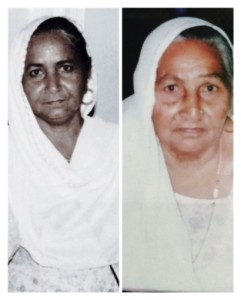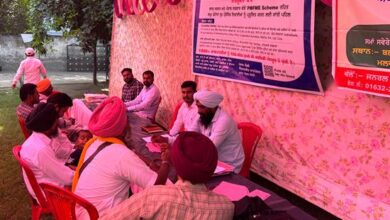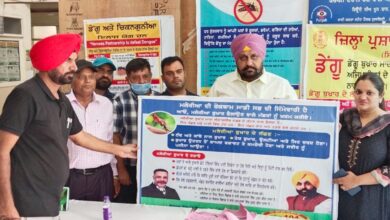Exemption of Stamp Duty on transfer of property in Blood Relations – Sisters seek clarification for inclusion of Cousin in “Kursinama”
Ferozepur September 22, 2016: Despite waiving off total stamp duty charges on transfer of property between spouses and blood relations in urban and rural areas, in pro-people movement of the Punjab government, as a relief to thousands of beneficiaries, non-transfer of landed property in the name of children of a brother died in certain circumstances, has put a question mark on the definition of blood relations.
In one such case, the 10 acre landed property in village Arif Ke in Ferozepur could not be transferred without stamp duty by Surjit Kaur and Sukhdev Kaur to one of the son of their brother – Bohar Singh who is no more in this world, as he does not fall within the ambit of the notification issued for transfer of property, in the category of blood relations, issued on May 12, 2014 under N.24/160/11/ST-2/6030-6300 by the Revenue Department of Punjab Government to all the Deputy Commissioners, SDMs, Tehsildars, Naib Tehsildars (Registrars and Sub-Registrars).
In a special gesture to encourage families to legally transfer property between blood relations and spouses including son, daughter, father, mother, brother, sister, grandson and granddaughter, the Punjab government also decided to waive off of social security fund, social infrastructure Cess and stamp duty on such transfers.
It was major decision of the SAD-BJP government regarding zero transfer fees on transfer of property to reduce legal disputes besides encouraging people to adopt legal rather than extra constitutional means to give closure to the family transfers.
It is pertinent to mention that the decision was in line with the government’s desire to encourage people to go in for legal registration of property rather than adopting ultra virus measures which only increased intra family disputes.
With the provision of exemption of stamp duty, the beneficiaries will be able to save Rs.1 lakh as stamp duty on the transfer of any immoveable property worth Rs.20 lakh. They would save Rs.7.5 lakh if the property was worth Rs1.5 crore. However, other charges, including registration fee, infrastructure cess, etc, will continue to be levied. This burden is around 4% in urban areas and 1% in rural areas.
Added here, under the Indian Stamp Act 1899 amended from time to time, the agriculture land and property out of the red line, was exempted from stamp duty, in 2004, on transfer during the life time, to the legal heirs. Later on, in July 2012, the residential, commercial, industrial and agriculture property owners were also included in the exemption list of legal heirs. However, it was made clear that in both the cases, this rule will be applicable if the transferee himself has purchased that property.
In the definition of transfer of immoveable property in blood relations without paying any stamp duty, during the life time, included are sons-grandsons, daughters-granddaughters, sisters or brother but there is no mention of transfer of such property to the children by any of these relations in the event of death, as per the latest clarification issued on August 17, 2016 and the notification would be application from November 2, 2015.
No doubt, the stamp duty has been ended up by the Punjab government on registration deeds of transfer of immoveable property to blood relations but ours is a very different case when our brother has expired and we want to transfer the landed property to his son. Both the sisters have demanded the inclusion of brother’s son in the relations for transfer of immoveable property without paying any registration fee charges, said Sukhdev Kaur and Surjit Kaur.
Moreover, in Punjab particular whenever there is a division of property among the family members, sisters are considered as having equal right even if as a customary they don’t accept as their right over such property, after the marriage, both shared like this.
Otherwise, it will be mockery of the meaning of blood relations so far as transfer of immoveable property is concerned, they added.
One of the revenue official on anonymity said, since the exemption of stamp duty, there is downfall in the revenue generation graph of the government. Other modus operandi to save the stamp duty adopted is that first the property is transferred by the wife to husband and then husband to his brother being in blood relations.
So far as the instant case is concerned, he said, in the case of married sister, the transfer of property of her share from paternity share does not fall under the existing definition of blood relations or the term used as ‘Kursinama” – Pedigree. However, in the event of unmarried sister, property can be considered to be transferred to a cousin in the event of death of a brother but this too needs to be amended in the existing instructions.






